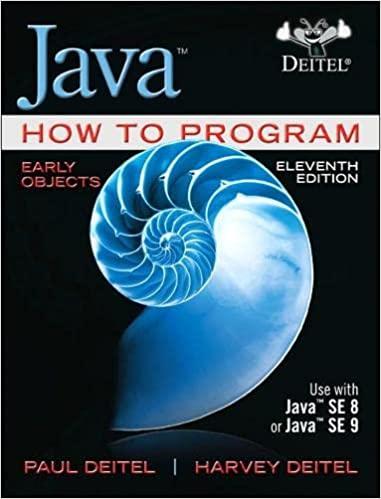Fill in the blanks in each of the following statements: a. Stream are formed from stream sources,
Question:
Fill in the blanks in each of the following statements:
a. Stream are formed from stream sources, intermediate operations and termi- nal operations.
b. The following code uses the technique of iteration:
int sum = 0;
for (int counter = 0; counter < values.length; counter++) {
sum += values[counter];
}
c. Functional programming capabilities focus on —not modifying the data source being processed or any other program state.
d. An implementation of the functional interface takes a T argument and returns void, and performs a task with its T argument, such as outputting the object, invoking a method of the object, etc.
e. An implementation of the functional interface takes no arguments and pro- duces a value of type T—this is often used to create a collection object in which a stream operation’s results are placed.
f. Streams are objects that implement interface Stream and enable you to perform func- tional programming tasks on of elements.
g. The intermediate stream operation results in a stream containing only the el- ements that satisfy a condition.
h. place the results of processing a stream pipeline into a collection such as a List, Set or Map.
i. Calls to filter and other intermediate streams are lazy—they aren’t evaluated until an eager operation is performed.
j. Pattern method uses a regular expression to tokenize a String and create a stream.
k. Functional interfaces must contain only one method, but may also contain
Step by Step Answer:

Java How To Program Early Objects
ISBN: 9780134743356
11th Edition
Authors: Paul Deitel, Harvey Deitel





